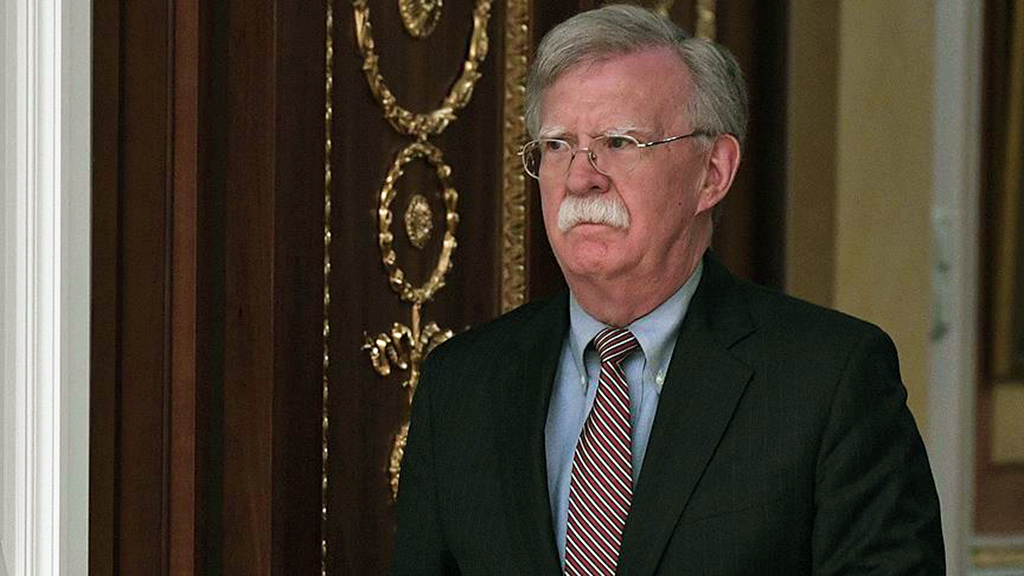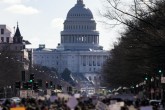Three members of U.S. President Donald Trump’s inner circle – National Security Adviser John Bolton, Gen. Joseph Dunford and Special Representative James Jeffrey — visited Ankara yesterday to hold talks with their Turkish counterparts on the United States withdrawal from Syria. Let’s just say that it wasn’t a walk in the park.
Judging by what Secretary of State Mike Pompeo and Bolton have been doing and saying lately, there’s something fishy going on. Bolton made a quick stop in the Israeli capital Tel Aviv on his way to Turkey. Pompeo will go on a week-long tour of Gulf states today. Those moves suggest that Trump’s foreign policy team remains committed to containing Iran and protecting/comforting U.S. partners, including the People’s Protection Units (YPG), the designated terrorist organization PKK’s Syrian affiliate. Although Trump pledged to withdraw U.S. troops from Syria last month, some members of his administration have been trying to slow things down. Their unwillingness to implement Trump’s policy decisions renders those decisions effectively null and void. As such, it seems that Secretary of Defense James Mattis resigned for no good reason. Unable to devise a long-term Syria policy, the Trump administration seems confused about leaving Syria due to tensions within the administration. After all, a new Syria policy will unmistakably amount to a new Middle East policy.
Obviously, what Trump means by containment isn’t Pompeo’s infamous 12 demands. The White House believes that renegotiating the nuclear deal is good enough. Ironically, Trump’s approach is even more pacifistic than his predecessor’s Iran policy. The U.S. president’s men, however, are after more comprehensive containment, because they are all anti-Iran hawks.
Although Trump told Turkey, Russia and Iran to finish the job in Syria, his foreign policy team has been busy issuing statements to ensure that Turkey can’t fight Daesh terrorists there. They would like Turkish forces to steer clear of the YPG-controlled area. In other words, they want Turkey to fight Daesh without establishing a foothold in northeastern Syria. As U.S. officials pledge to protect Syrian Kurds from an imaginary massacre by the Turks, certain news organizations have been criticizing a Turkish request from the United States for logistical support in the new counter-Daesh campaign. Under immense domestic pressure, Trump started making concessions. In recent days, the U.S. president backtracked on his earlier pledge to pull out of Syria immediately.
The soldiers that defied Trump have stepped down. Yet, the U.S. president’s current team seems more interested in swinging the lead than implementing Trump’s decisions. By playing for time and making new moves, they are desperately trying to undermine the White House’s authority. Let’s wait and see whether Trump has more tricks up his sleeve.
[Daily Sabah, 9 January 2019]
In this article
- Opinion
- CENTCOM
- DAESH
- Daily Sabah
- Donald Trump
- East of the Euphrates
- Fight against DAESH
- gulf
- Islamic Republic of Iran
- Israel
- James Jeffrey
- John Bolton
- Kurdistan Workers' Party Terrorist Organization (PKK)
- Middle East
- Mike Pompeo
- NATO
- NATO Ally
- Operation Euphrates Shield
- Peace Corridor
- People's Protection Units (YPG)
- PKK - YPG - SDF - PYD - YPJ - SDG - HBDH - HPG - KCK - PJAK - TAK - YBŞ
- Russia
- Safe Zone
- Syria
- Syrian Civil War
- Syrian Conflict
- Syrian Crisis
- Syrian Democratic Forces (SDF)
- Syrian National Army (SNA)
- Syrian National Coalition
- Syrian Opposition
- Syrian Refugees
- Tel Aviv
- Terrorism
- Trump Administration
- Trump’s Syria Withdrawal
- Turkish Foreign Policy
- Turkish-American Relations
- Türkiye-US Relations
- Türkiye-US Security Relations
- Türkiye's Foreign Policy
- Türkiye's Operation Peace Spring
- Türkiye’s Operation Olive Branch
- United States (US)
- US President
- US Withdrawal from Syria
- US-PKK/PYD/YPG/SDF Relations
- US-Terror Relations
- Vladimir Putin



